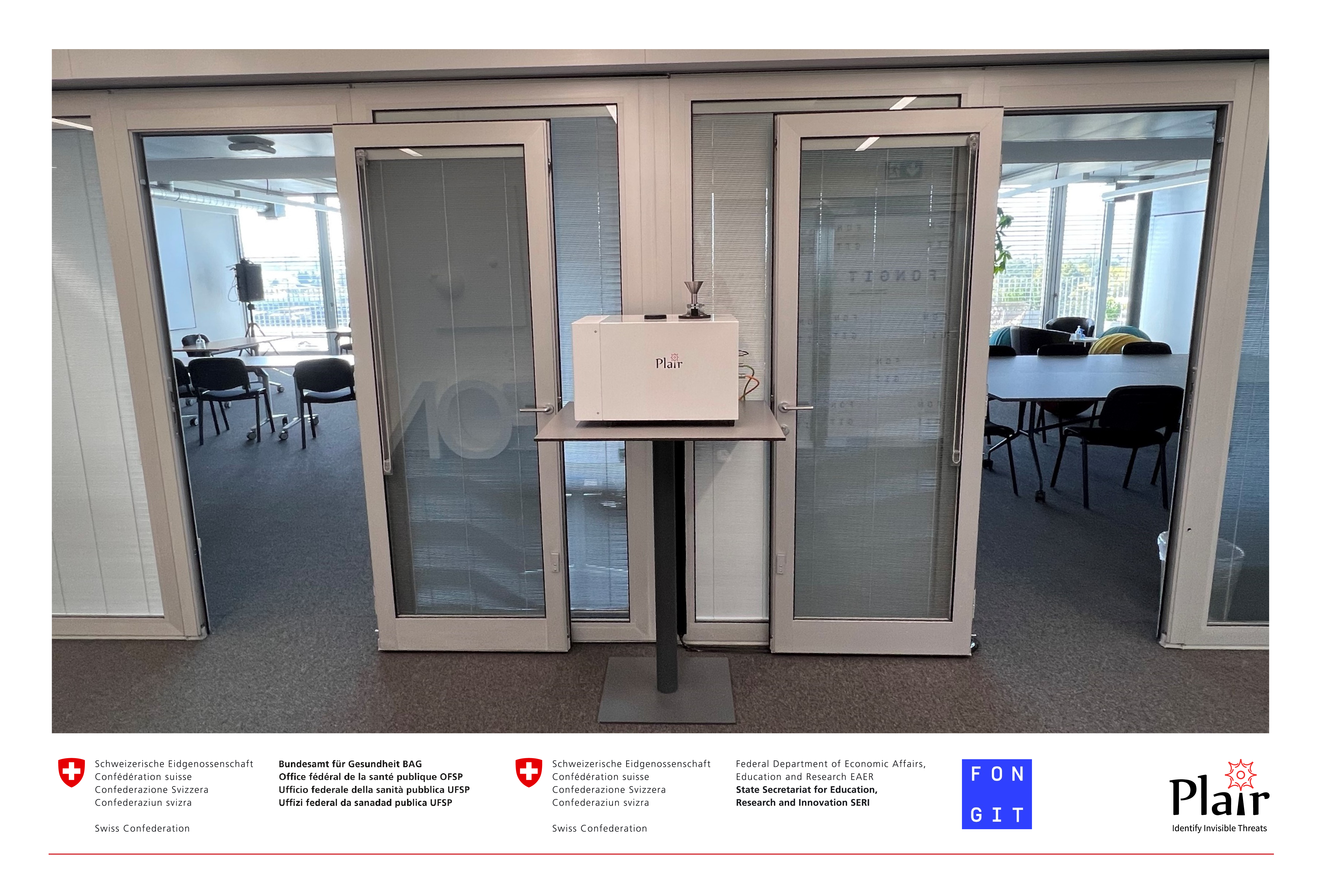Plair Newsletter - December 2022

Rapid-C is the solution to the newly published European Union Guidelines for Good Manufacturing Practice, Annex 1.
The recent update of Annex 1 of the EudraLex Volume 4, European Union Guidelines for Good Manufacturing Practice, is prompting impelling challenges at all stages of pharmaceutical manufacturing and quality. In this context, more and more companies are aiming to incorporate advanced digital elements into their facilities to implement a Pharma 4.0-oriented framework. Rapid-C, Plair’s microbial particle detector, makes a key contribution to automation and digitalization via its continuous air sampling and real-time detection of microbes, which expedites a robust contamination control strategy by reducing the time to results.
Rapid-C’s automated and uninterrupted operation reduces the potential for contamination and provides a complete understanding of the process, leading to a clear root cause analysis and prompt corrective actions. Paperless and human intervention-free air monitoring also provides a greater degree of transparency and data integrity.
The fast pace of Rapid-C development enables new features for Rapid-E+ users.
Rapid-E+, our real-time bioaerosol sensor and analyzer dedicated to research applications, allows users to continuously characterize single airborne particles by multiangle time-resolved light scattering and advanced fluorescence analysis (spectrum and lifetime). With the latest software release, users can explore raw data visually, build detection models, and add them to the Rapid-E+ dashboard for real-time bioaerosol tracking. This new tool requires no coding and can be applied to pollen, fungal spores, bacteria, or any other airborne particles.
A new Plair site is dedicated to validating and testing the Rapid product line.
Plair is opening a new bioaerosol testing facility dedicated to the certification, validation, calibration, and testing of Rapid-series instruments. The facility will be used for the validation of instruments as an alternative rapid microbiological method with authorities of the European Medicines Agency and the U.S. Food and Drug Administration, as well as for quality control manufacturing. The facility comprises a 30-cubic-meter aerosol chamber built with the best materials for best performance in a spirt of no compromise for the ultimate reduction of airborne particle losses during transport and sampling. Plair designed and implemented this laboratory as the future etalon for validating alternative microbiological methods. Please contact Plair to learn more about this facility or to rent it.
This project has received funding from the Swiss State Secretariat for Education, Research and Innovation.
Indoor air quality monitoring is taken to the next level with Rapid-C.
The COVID-19 pandemic showed how airborne pathogens can easily spread and linger in indoor environments, making shared spaces a source of infections. Rapid-C’s unrivaled ability to detect and classify every particle in the air helps to make commercial buildings safer and to protect their occupants more effectively. With support from the Swiss Federal Office of Public Health, Plair is conducting a study to observe the microbiological quality of air inside an office space at the Geneva Foundation for Technology Innovation (FONGIT), where a Rapid-C has been installed for seven weeks. We look forward to the study’s outcome and to examining the detector’s impact on indoor public health.

We warmly thank you for your support and contribution to the success of Plair SA. We wish you and your family a joyful holiday season and a prosperous New Year!
The Plair SA Team
